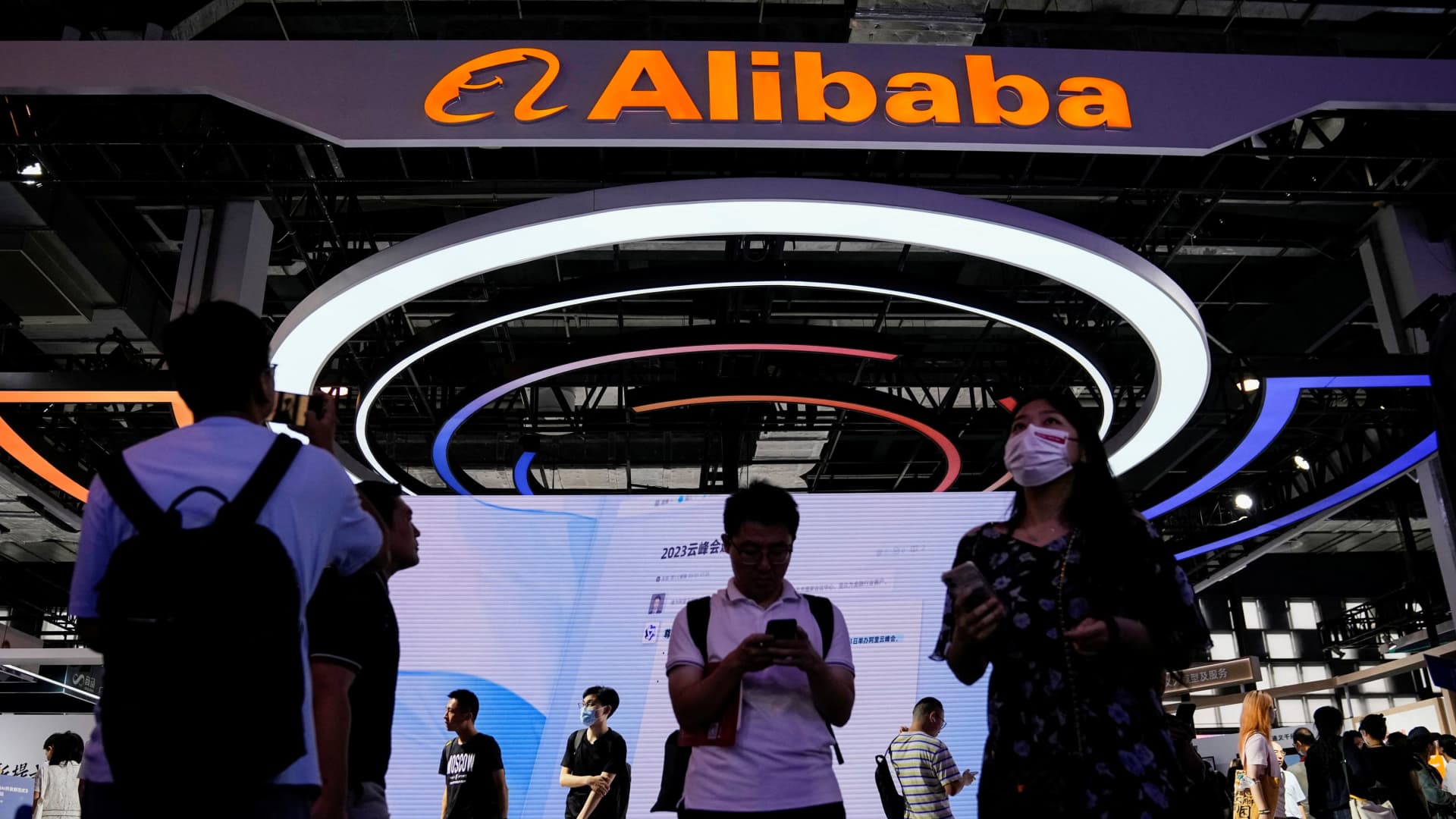
An Alibaba Group sign is seen at the World Artificial Intelligence Conference in Shanghai, July 6, 2023.
Aly Song | Reuters
Alibaba on Tuesday launched the latest version of its artificial intelligence model, as the Chinese technology giant looks to compete with U.S. tech rivals such as Amazon and Microsoft.
China’s biggest cloud computing and e-commerce player announced Tongyi Qianwen 2.0, its latest large language model (LLM). A LLM is trained on vast amounts of data and forms the basis for generative AI applications such as ChatGPT, which is developed by U.S. firm OpenAI.
Alibaba called Tongyi Qianwen 2.0 a “substantial upgrade from its predecessor,” which was introduced in April.
Tongyi Qianwen 2.0 “demonstrates remarkable capabilities in understanding complex instructions, copywriting, reasoning, memorizing, and preventing hallucinations,” Alibaba said in a press release. Hallucinations refer to AI that presents incorrect information.
Alibaba also released AI models designed for applications in specific industries and uses — such as legal counselling and finance — as it angles in on businesses.
The Hangzhou-headquartered company also announced the GenAI Service Platform, which lets companies build their own generative AI applications, using their own data. One of the fears that businesses have about public generative AI products like ChatGPT is that data could be accessed by third parties.
Alibaba and other major cloud players are offering tools for companies to build their own generative AI products using their own data, which would protected by these providers as part of the service package.
Microsoft’s Azure OpenAI Studio and Amazon Web Service’s Bedrock are two rival services.
While Alibaba is the biggest cloud player by market share in China, the company is trying to catch up with the likes of Amazon and Microsoft overseas.





